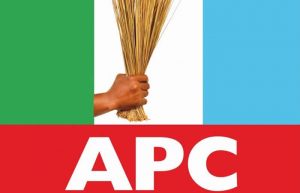The political landscape of Plateau State, Nigeria, has been marked by internal strife within the ruling All Progressives Congress (APC) party, particularly following the party’s disappointing performance in the 2023 general elections. The North-Central APC Forum, a recognized support group within the party, has publicly attributed the APC’s electoral setbacks to the actions and decisions of Professor Nentawe Yilwatda, the Minister of Humanitarian Affairs and Poverty Reduction and the party’s gubernatorial candidate in the 2023 elections. This public disagreement has unveiled deeper tensions within the party and raised questions about leadership, accountability, and the future direction of the APC in Plateau State.
The core of the dispute stems from the Forum’s criticism of Yilwatda’s handling of humanitarian crises in the state, particularly concerning the displacement of residents due to violent attacks. The Forum contends that Yilwatda’s alleged ineffectiveness in addressing these critical issues contributed to the erosion of public trust and ultimately impacted the APC’s electoral fortunes. Yilwatda, however, has vehemently dismissed the Forum’s criticisms, questioning its legitimacy and accusing its chairman, Saleh Zazzaga, of lacking commitment to the party. The minister has also characterized the Forum’s actions as targeted attacks against prominent APC leaders, including National Chairman Abdullahi Ganduje and Secretary to the Government of the Federation George Akume, portraying himself as the latest target of their criticism.
The Forum, in response, maintains that its earlier statements were intended as constructive advice, not hostile attacks. They argue that Yilwatda’s refusal to heed their counsel was a significant contributing factor to the APC’s losses in both the presidential and gubernatorial elections in Plateau State. The Forum has emphasized its official recognition as a registered APC support body since 2018, boasting a diverse membership comprising individuals from various sectors and former public officeholders. This underscores their assertion that they are not a fringe group but rather a legitimate voice within the party structure.
Furthermore, the Forum has addressed Yilwatda’s accusations point by point. Regarding the alleged targeting of party leaders, Zazzaga clarified that their engagement with Ganduje was related to advocating for the National Chairman position to remain within the North-Central zone, a stance they abandoned once Ganduje’s suitability for the role was established. Zazzaga also challenged Yilwatda’s claim of being unaware of his (Zazzaga’s) standing within the APC, highlighting his appointments to three committees during Yilwatda’s gubernatorial campaign and his involvement in the APC Presidential Campaign Council, as well as other national party assignments. This serves to demonstrate Zazzaga’s active participation and commitment to the party, contradicting Yilwatda’s assertions.
Adding another layer of complexity to the situation, the Forum recently withdrew an ultimatum it had issued to the Plateau APC Executive Committee regarding reconciliation efforts. While attributing this withdrawal to a “miscommunication,” the move suggests ongoing internal discussions and attempts to navigate the fractured relationships within the state chapter of the party. Despite the withdrawal of the ultimatum, the Forum has reaffirmed its intention to lobby for Governor Caleb Mutfwang of the opposition Peoples Democratic Party (PDP) to join the APC. This intriguing development highlights the Forum’s strategic maneuvering and their apparent belief in Mutfwang’s political influence and potential to bolster the APC’s standing in Plateau State.
This internal conflict within the Plateau APC exposes the challenges the party faces in maintaining unity and cohesion following its electoral setbacks. The public airing of grievances between the North-Central APC Forum and Professor Yilwatda underscores deeper issues of communication breakdown, differing perspectives on leadership, and strategic disagreements on the path forward. The Forum’s persistent criticism of Yilwatda, coupled with their overtures to a prominent opposition figure, suggests a potential power struggle within the party and raises questions about the long-term stability and direction of the APC in Plateau State. The outcome of this internal conflict will likely have significant implications for the party’s future prospects and its ability to regain lost ground in the state’s political landscape. The party’s ability to reconcile these differences and present a united front will be crucial for its future electoral success. The situation highlights the need for internal dialogue and conflict resolution mechanisms within the APC to address these challenges effectively and prevent further fragmentation.


